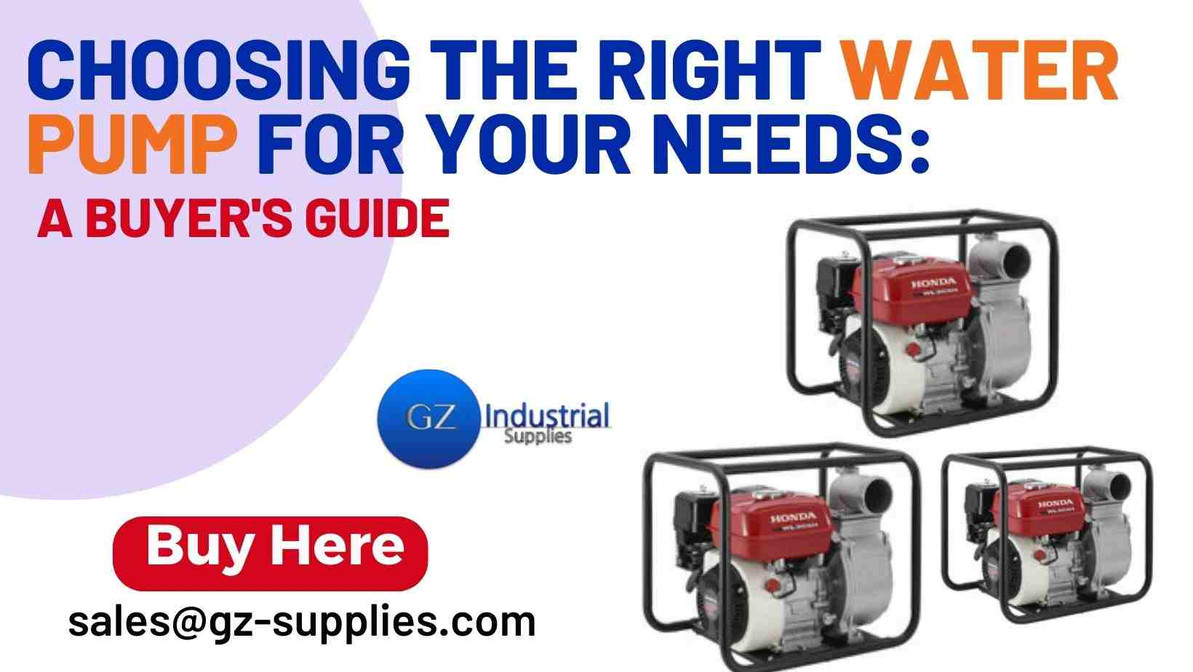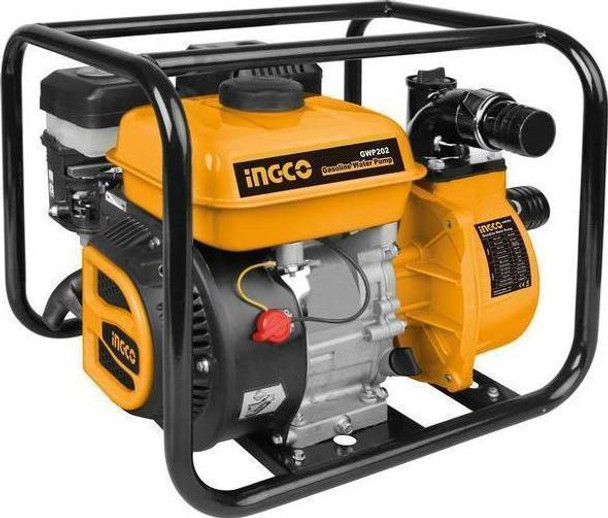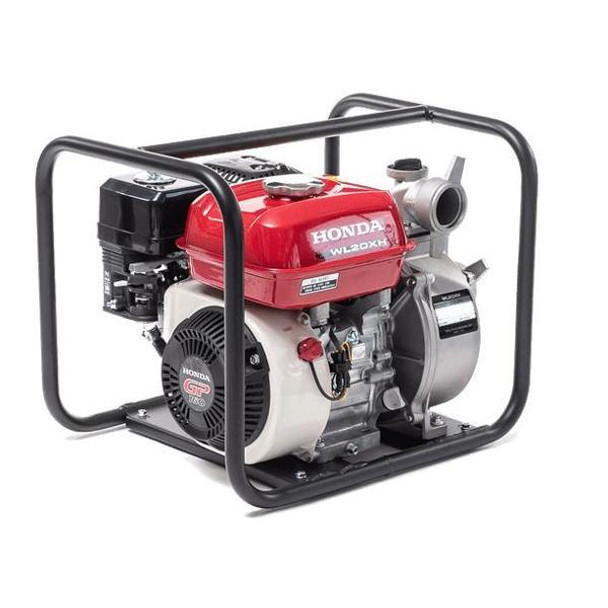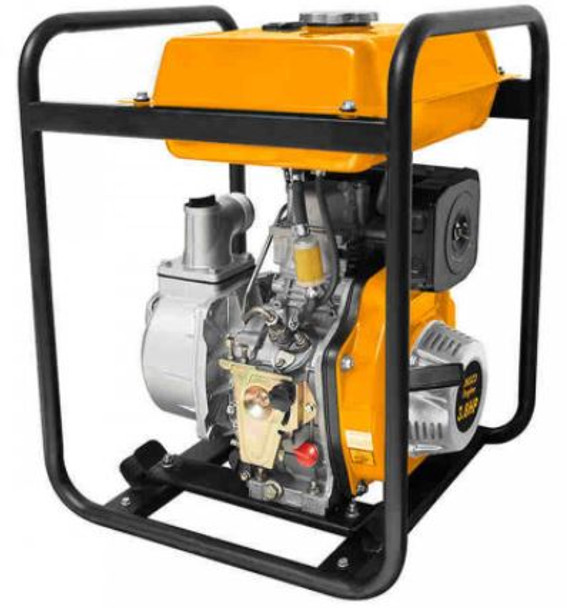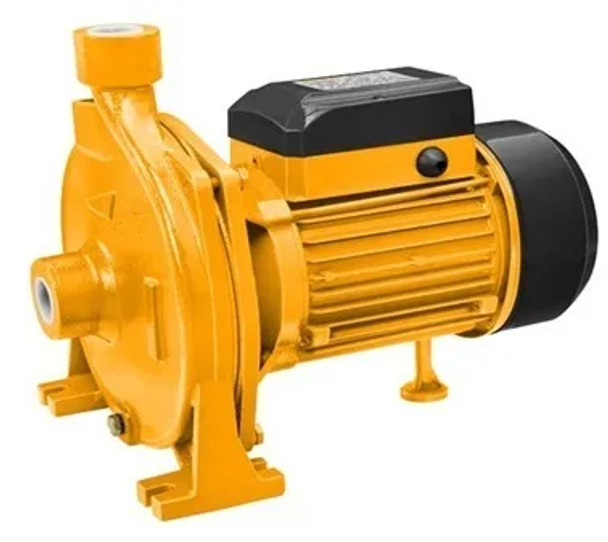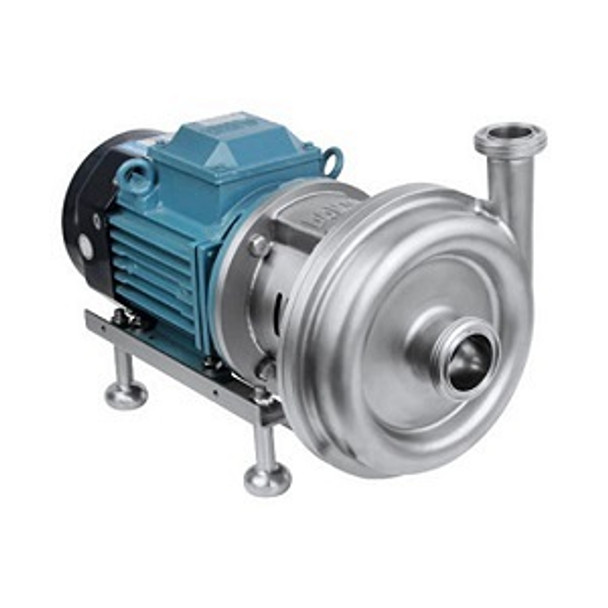Choosing the Right Water Pump for Your Needs: A Buyer's Guide
Key takeaway
Selecting the right water pump is a decision that can have a significant impact on your daily life, whether you are a homeowner, a farmer, an industrial operator, or anyone else in need of a reliable water supply. Water pumps are versatile tools used for various purposes, including providing clean drinking water, supporting agricultural irrigation, facilitating industrial processes, and even serving as emergency backup systems. The importance of choosing the right water pump cannot be overstated, and that's precisely what this buyer's guide aims to address.
Introduction
When it comes to water pumps, selecting the right one is a critical decision that can have a profound impact on various aspects of your life, whether you're looking for a water pump for your home, farm, industrial operation, or other applications.
Water pumps come in a multitude of types, sizes, and configurations, each designed to serve specific purposes. The abundance of choices can often be overwhelming, leaving buyers with numerous questions and uncertainties. Should you opt for a submersible or a centrifugal pump? How can you determine the ideal size and capacity for your requirements? What factors should be considered to ensure efficiency and cost-effectiveness? These are just a few of the questions that this guide will address.
Our goal is to empower you with the knowledge and insights needed to make informed decisions when purchasing a water pump. Whether you're a homeowner seeking a reliable water supply or a professional in need of an industrial-grade solution, this guide will help you navigate the complexities of choosing the right water pump for your specific needs. We'll explore the different types of water pumps available, discuss their applications, and provide valuable tips for selecting the best fit for your situation. By the time you've reached the end of this guide, you'll be equipped with the expertise to confidently invest in a water pump that fulfills your requirements efficiently and effectively. Let's dive in and find the perfect water pump for you.
Buy Online... INGCO Gasoline Water Pump 2" GWP202
Types of Water Pumps
Selecting the right type of water pump is a crucial decision when you're in need of a reliable water supply. In this section, we'll provide an overview of the different water pump types, including submersible pumps, centrifugal pumps, diaphragm pumps, and positive displacement pumps. We'll also guide you through the process of selecting the most suitable pump type for your specific needs.
1. Submersible Pumps
Submersible pumps are designed to be fully submerged in the water they are pumping. They are typically used for deep wells, boreholes, and other applications where the water source is below ground level. These pumps are efficient and quiet, making them an excellent choice for residential and agricultural water supply.
Submersible pumps are specially designed for applications where the water source is deep below the ground. They offer several advantages, including:
- Efficiency: Submersible pumps are highly efficient because they push water directly to the surface, reducing friction and energy loss in long pipe runs.
- Quiet Operation: Since they are submerged in water, submersible pumps are quieter than many other types of pumps, making them ideal for residential and noise-sensitive environments.
- Reliability: These pumps are known for their reliability and longevity, as they are well-protected from environmental factors like weather and debris.
- Applications: Submersible pumps are commonly used for residential water supply from wells, agricultural irrigation, sewage pumping, and even in some industrial applications.
2. Centrifugal Pumps
Centrifugal pumps are among the most common types of water pumps. They work by using a rotating impeller to create a flow of water. Centrifugal pumps are versatile and can handle a wide range of flow rates and pressures, making them suitable for various applications, from home water systems to industrial processes.
Centrifugal pumps are perhaps the most widely used type of water pump. Their key characteristics include:
- Simplicity: Centrifugal pumps are straightforward in design, consisting of an impeller that spins and generates centrifugal force to move water.
- Versatility: They can handle a broad range of flow rates and pressure levels, making them suitable for many applications, from home water systems to wastewater treatment plants.
- Applications: Centrifugal pumps are employed in municipal water supply, sewage systems, heating and cooling systems, and various industrial processes, among others.
3. Diaphragm Pumps
Diaphragm pumps use a flexible diaphragm to move water. They are known for their ability to handle viscous fluids and can be used for applications that require accurate dosing and control of flow. Diaphragm pumps are commonly used in chemical and pharmaceutical industries.
Diaphragm pumps are valued for their ability to handle viscous and abrasive fluids and precise control over flow. Their features include:
- Accuracy: Diaphragm pumps offer precise dosing and metering capabilities, making them vital in chemical, pharmaceutical, and food processing industries.
- Versatility: They are suitable for applications involving corrosive, abrasive, or shear-sensitive materials.
- Applications: Diaphragm pumps are often used in chemical dosing, wastewater treatment, and any process that requires controlled fluid transfer.
4. Positive Displacement Pumps
Positive displacement pumps operate by trapping a fixed amount of water and then forcing it through the system. These pumps are efficient and suitable for applications where precise control is essential. Positive displacement pumps are often used in dosing systems and high-pressure industrial processes.
Positive displacement pumps are known for their consistent and efficient flow. Key characteristics include:
- Precision: They deliver a constant volume of water per rotation, making them ideal for applications where accuracy and reliability are essential.
- Variety: Positive displacement pumps come in various forms, including gear, piston, and peristaltic pumps, each with unique applications.
- Applications: They are commonly used in dosing systems, hydraulic systems, and high-pressure industrial processes.
Buy Online... Deep Well Pump INGCO DWP7501
Selecting the Right Water Pump for Your Needs
To choose the right water pump type for your specific needs, consider the following factors:
- Application: Determine the primary purpose of the pump (e.g., residential, agricultural, industrial, or specialized applications).
- Water Source: Assess the depth and location of your water source to determine whether a submersible pump is required.
- Flow Rate and Pressure: Understand your required flow rate and pressure levels to ensure the pump you choose can meet these specifications.
- Fluid Compatibility: Consider the type of fluid you'll be pumping and whether it's corrosive, abrasive, or shear-sensitive.
- Budget: Take into account your budget and the cost of the pump, as well as any potential long-term maintenance or operational costs.
By understanding the distinctions between these water pump types and evaluating your specific requirements, you can make an informed decision that ensures you select the ideal pump for your needs, whether it's for providing clean drinking water, irrigation, industrial processes, or any other application.
Understanding Your Requirements
Selecting the right water pump involves a deep understanding of your specific needs. In this section, we'll explore how to determine your water pumping requirements, including considerations such as flow rate, water pressure, head height, and environmental factors.
A. Determining Your Specific Water Pumping Needs
- Water Source: Start by identifying the source of water you intend to pump from. This could be a well, a river, a lake, or a municipal water supply.
- Purpose: Determine the purpose of the water pump. Are you using it for residential water supply, agricultural irrigation, industrial processes, or some other application?
- Water Quality: Consider the quality of the water source. If it contains debris, sediments, or chemicals, you may need a pump equipped with specific features to handle these elements.
B. Flow Rate and Water Pressure Considerations
- Flow Rate: Flow rate, measured in gallons per minute (GPM) or liters per second (L/s), is the volume of water the pump can move in a given time. Calculate your required flow rate based on your application's demand.
- Water Pressure: Water pressure, measured in pounds per square inch (PSI) or bars, is the force with which the water is delivered. Ensure the pump you select can provide the necessary pressure to reach your intended destinations.
C. Head Height and Vertical Lift Requirements
- Head Height: Head height refers to the vertical distance the water needs to be lifted from the source to the point of use. The greater the head height, the more powerful the pump you'll require.
- Vertical Lift: Consider any additional vertical lift requirements, which may be the height water needs to be raised within your system. This can include reaching multiple floors in a building or uphill irrigation.
D. Environmental Factors and Power Source
- Environmental Conditions: Take into account environmental factors, such as weather and temperature. If the pump will be exposed to harsh conditions, you may need one that is corrosion-resistant, weatherproof, or suitable for extreme temperatures.
- Power Source: Determine the power source for your pump. It can be electric, gasoline, diesel, solar, or wind. Choose the power source that aligns with your location and energy availability.
Buy Online... Honda Water Pump WL20XH
Water Pump Applications
Now that you've grasped your water pumping requirements, it's essential to understand how these pumps are applied across various domains. Each application comes with distinct needs and considerations.
A. Residential Water Pump Applications
- Domestic Water Supply: Residential water pumps are commonly used to provide households with a consistent and reliable supply of clean water. This includes drawing water from wells, boreholes, or municipal sources.
- Pressure Boosting: In homes with low water pressure, booster pumps are used to increase water pressure and ensure a steady flow, particularly in multi-story buildings.
- Sump and Well Pumping: Sump pumps are installed in basements to prevent flooding by pumping out excess water. Well pumps are essential for accessing well water for drinking, irrigation, and other household needs.
B. Agricultural and Irrigation Uses
- Irrigation: Water pumps are crucial in agriculture for irrigation purposes, ensuring that crops receive an adequate and consistent water supply.
- Dewatering: Agriculture often requires dewatering pumps to manage excess water, especially in areas with high groundwater levels.
- Livestock and Farm Operations: Farms use water pumps for various applications, including supplying water to livestock, powering machinery, and maintaining farm infrastructure.
C. Industrial and Commercial Applications
- Process Water: Industries rely on water pumps for processes such as manufacturing, cooling, and wastewater management.
- Municipal Water Systems: Municipalities use large-scale water pumps for providing clean water to residents and managing wastewater.
- Mining and Construction: These sectors require robust pumps for dewatering, moving slurry, and other demanding applications.
D. Emergency and Backup Systems
- Backup Power Systems: Backup water pumps are crucial for emergency situations, providing water during power outages, natural disasters, or other crises.
- Fire Suppression: Fire pumps are designed to deliver high-pressure water for firefighting purposes, protecting lives and property.
Understanding the specific applications for water pumps helps you tailor your choice to the unique demands of your intended use. Whether it's for residential convenience, agricultural productivity, industrial efficiency, or emergency preparedness, selecting the right pump is essential to meet your goals and requirements effectively.
Buy Online... INGCO Diesel Water Pump GEP402
Factors for Consideration when choosing the right water pump
Choosing the right water pump involves considering several essential factors to ensure you make an informed decision. Here, we delve into key considerations, including efficiency, cost, maintenance, and customer support.
A. Efficiency and Energy Consumption
- Energy Efficiency: Assess the pump's energy efficiency and its impact on your operational costs. Look for pumps with high Energy Star ratings or other energy-efficiency certifications.
- Variable Speed Drives: Pumps with variable speed drives can adjust their performance based on demand, improving energy efficiency by reducing unnecessary power consumption.
B. Cost Considerations and Budgeting
- Initial Cost: Evaluate the initial cost of the pump and ensure it fits within your budget constraints.
- Total Cost of Ownership: Consider the long-term costs, including maintenance, repairs, and energy consumption, to determine the total cost of ownership over the pump's lifespan.
C. Maintenance and Longevity
- Maintenance Requirements: Understand the maintenance needs of the pump, such as cleaning filters, lubricating parts, or replacing seals. Some pumps require minimal maintenance, while others need more frequent attention.
- Longevity: A durable and well-maintained pump can last for many years. Consider the materials and construction to assess its potential lifespan.
D. Warranty and Customer Support
- Warranty Terms: Investigate the warranty offered by the manufacturer, including its duration and what it covers. A robust warranty can provide peace of mind.
- Customer Support: Research the manufacturer's reputation for customer support and responsiveness to address potential issues or inquiries.
Consider Sizing and Capacity when choosing Water pump
Properly sizing and determining the capacity of your water pump is crucial to meet your specific needs without over-sizing or under-sizing.
A. Calculating the Required Pump Size and Capacity
- Flow Rate: Calculate the required flow rate based on the water demand for your application. Consider peak demand and any potential future needs.
- Pressure: Determine the required pressure to ensure the water can reach all intended points of use efficiently.
B. Avoiding Over-Sizing or Under-Sizing
- Over-Sizing: Over-sized pumps can be inefficient and costly to operate. They may also lead to short cycling and premature wear and tear.
- Under-Sizing: Under-sized pumps won't meet your needs, leading to inadequate water supply and potentially straining the pump.
C. Matching the Pump to Your Intended Use
Consider the specific requirements of your application, such as the distance the water needs to travel, the type of water source, and any variations in demand throughout the day or year. Ensure the pump is well-matched to these needs.
Buy Online... Centrifugal Water Pump 2HP INGCO CPM15008
Selecting the Right Brand and Model for Water Pump
Choosing a reputable brand and model is essential to ensure quality and reliability in your water pump.
A. Researching Reputable Brands and Manufacturers
- Manufacturer Reputation: Research the reputation of the manufacturer. Established and reputable companies often provide more reliable products.
- Certifications: Look for pumps with industry certifications that demonstrate adherence to quality and safety standards.
B. Comparing Features and Specifications
- Features: Compare the features offered by different models, considering factors such as materials, control options, and built-in protection mechanisms.
- Specifications: Examine the specifications of the pump, including flow rate, pressure capabilities, and power source compatibility.
C. Reading Reviews and Seeking Recommendations
Read user reviews and seek recommendations from experts or others in your industry who have experience with similar pump models. Real-world experiences can offer valuable insights into a pump's performance and reliability.
Installation and Maintenance for Water Pump
Proper installation and ongoing maintenance are critical for the longevity and performance of your water pump.
A. Proper Installation Guidelines
Follow the manufacturer's installation guidelines closely to ensure the pump is set up correctly. Consider professional installation for complex systems.
B. Routine Maintenance Tips for Long-Lasting Performance
- Regular Inspections: Periodically inspect the pump for signs of wear, leaks, or performance issues.
- Cleaning and Lubrication: Follow recommended cleaning and lubrication schedules to keep the pump in optimal condition.
C. Troubleshooting and Common Issues
Learn to troubleshoot common pump issues, such as loss of prime, motor problems, or leaks. Understanding these issues can help you address problems promptly and prevent further damage.
By carefully considering these factors, sizing and capacity requirements, and the brand and model of the pump, as well as adhering to proper installation and maintenance practices, you can make an informed decision when selecting a water pump that will meet your needs efficiently and reliably.
Buy Online... Hygienic Food Centrifugal Pump with Motor 3A Hellog
Related Article
Where to Buy Water Pumps in Nigeria
Conclusion
In this comprehensive guide, we've covered a wide array of crucial aspects in the process of choosing the right water pump. From understanding the various types of pumps to evaluating your specific requirements, sizing, brand selection, and maintenance, we've provided you with a holistic approach to make an informed decision.
Armed with this knowledge, you now possess the expertise to confidently select the perfect water pump for your specific needs. Whether you're seeking a pump for residential water supply, agricultural irrigation, industrial processes, or emergency backup, you're well-equipped to navigate the complexities of the market and make a choice that will serve you efficiently and reliably.
Remember, investing in a quality water pump is an investment in the reliability and efficiency of your water supply. Take your time to carefully evaluate your requirements, consider the factors we've discussed, and don't hesitate to seek expert advice if needed. Regular maintenance and attention to the pump's performance will ensure it serves you well for years to come.
Thank you for entrusting us with the task of guiding you through this important decision. We wish you success in your endeavors, and may your chosen water pump serve you seamlessly in all your applications. If you have any further questions or need additional assistance, don't hesitate to reach out. Here's to a reliable and efficient water supply!
Recent Posts
-
How to Choose the Right Industrial Cleaning Service Provider
Key takeawayThoroughly Assess Your Needs and Providers: Understand your specific industrial cle …Jul 26, 2024 -
Floor Paint Maintenance: How to Keep Your Floors Looking Their Best
Maintaining your painted floors is essential for preserving their beauty and extending their lifespa …Jul 25, 2024 -
The Best Floor Paint for Different Types of Flooring
When it comes to revitalizing your home's flooring, choosing the right paint can make all the d …Jul 19, 2024

